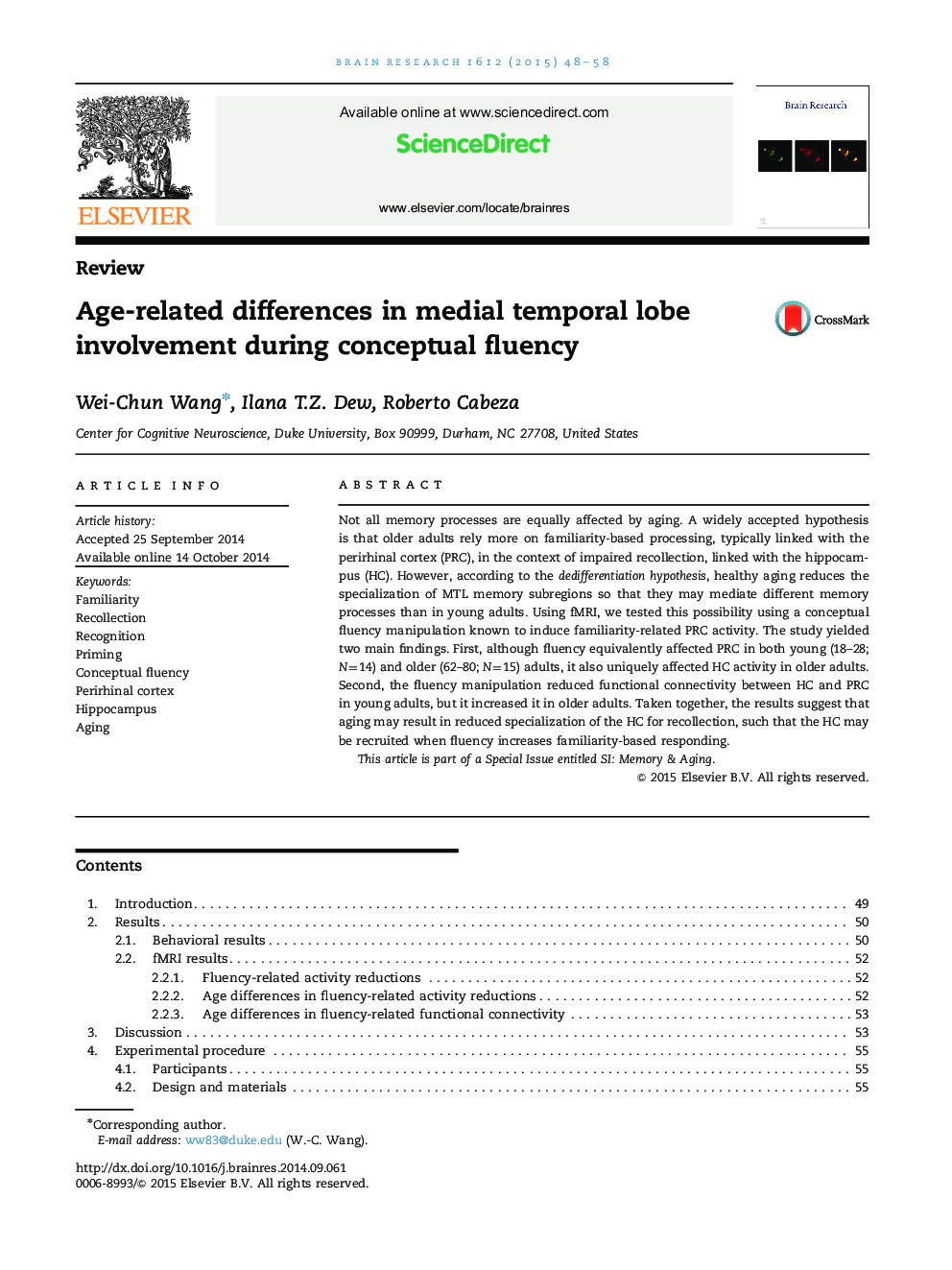| Article ID | Journal | Published Year | Pages | File Type |
|---|---|---|---|---|
| 6263079 | Brain Research | 2015 | 11 Pages |
â¢We investigated the effects of aging on conceptual fluency during recognition.â¢Activity reductions were observed in both age groups in perirhinal cortex (PRC).â¢Reductions were also observed in hippocampus (HC) in older, but not young, adults.â¢Additionally, PRC-HC connectivity was increased in older relative to young adults.â¢Results indicate reduced specialization of HC in healthy aging.
Not all memory processes are equally affected by aging. A widely accepted hypothesis is that older adults rely more on familiarity-based processing, typically linked with the perirhinal cortex (PRC), in the context of impaired recollection, linked with the hippocampus (HC). However, according to the dedifferentiation hypothesis, healthy aging reduces the specialization of MTL memory subregions so that they may mediate different memory processes than in young adults. Using fMRI, we tested this possibility using a conceptual fluency manipulation known to induce familiarity-related PRC activity. The study yielded two main findings. First, although fluency equivalently affected PRC in both young (18-28; N=14) and older (62-80; N=15) adults, it also uniquely affected HC activity in older adults. Second, the fluency manipulation reduced functional connectivity between HC and PRC in young adults, but it increased it in older adults. Taken together, the results suggest that aging may result in reduced specialization of the HC for recollection, such that the HC may be recruited when fluency increases familiarity-based responding.This article is part of a Special Issue entitled SI: Memory & Aging.
